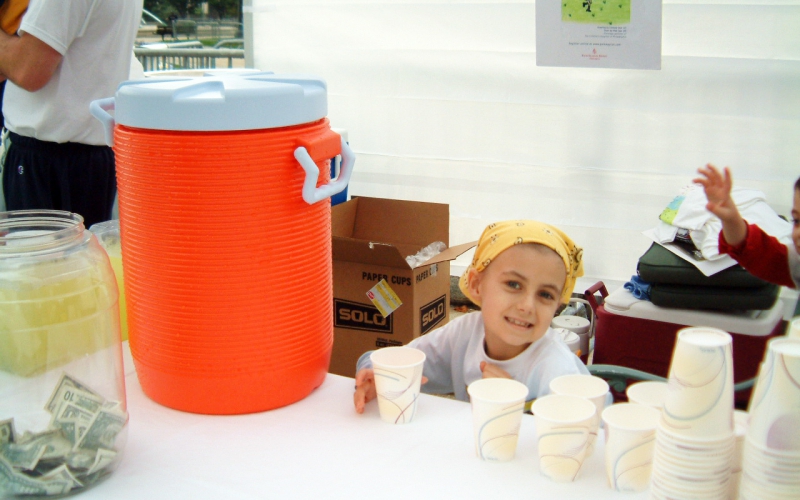
By: Trish Adkins
During The Million Mile in September, supporters work together to go more than 1 million miles and raise over $1 million for childhood cancer research and programs for families! All year long, Alex’s Lemonade Stand Foundation (ALSF) uses this money to fund innovative projects at every stage of research to ensure cures are being found today and for the future.
Here are seven ways $1 million helps children with cancer:
Through this grant category, ALSF attracts the best and the brightest early career scientists to the field of childhood cancer research. These amazing scientists receive the funding they need to continue working towards childhood cancer breakthroughs. Four different grant programs propel young scientists through all stages of early research from student research to start-up to more innovative programs.
2. Accelerate Research
Big rewards come with big risks. ALSF accelerates the rate of research by investing in projects that embrace innovation and have the potential of resulting in breakthroughs. Seven different programs, including the landmark Crazy 8 Initiative, work towards building infrastructure, implementing clinical trials and ultimately bringing new treatments to children waiting desperately for cures.
3. Improve the Quality of Life and Care for Childhood Cancer Heroes
The ALSF Quality of Life and Care program empowers clinicians to make powerful discoveries for children in treatment as well as long-term childhood cancer survivors. A cure is not enough — and the Psychosocial grant programs help ensure childhood cancer heroes have the best outcomes.
4. Support Big Data as a Tool to Fight Childhood Cancer
For years, the primary tools to fight childhood cancer were beakers and test tubes. Now, ALSF is adding big data to that arsenal with the opening of the Childhood Cancer Data Lab (CCDL). The lab, which launched in August 2017, collects and analyzes findings from the world of childhood cancer research. Our CCDL team uses that data to integrate discoveries and give researchers data tools to help them approach childhood cancer research.
5. Get Families to Treatment Quicker
Traveling for childhood cancer treatment is often necessary and expensive. Treatment options can change in an instant and families are forced to make quick travel plans to reach potentially lifesaving treatments. Recognizing the financial burden that families often face during treatment, the ALSF Travel for Care program provides financial assistance for lodging and transportation to families who travel to hospitals in the U.S. and Canada for treatment.
6. Help Siblings While Their Brother or Sister Battles Cancer
Childhood cancer impacts the entire family and often siblings are left with their world turned upside down. Our SuperSibs program works to support brothers and sisters of all ages as they face complex emotions, turmoil, treatment and changing family dynamics. SuperSibs materials provide participating siblings with age-appropriate resources and community support to cope with a childhood cancer diagnosis in their family.
7. Support Families Through All Phases of Treatment and Survivorship
ALSF is dedicated to providing a full array of family support services, including a treatment journal to provide a place to keep track of important information, the Childhood Cancer Guides series that provide critical information in one handbook and the Hero Ambassador network which provides childhood cancer families with support and comraderie.
Ready to help us raise our next $1 million for childhood cancer research and services? Find out how you can get involved with The Million Mile this September!

